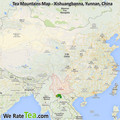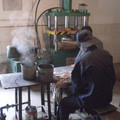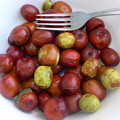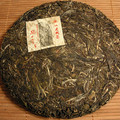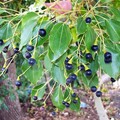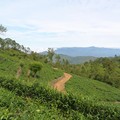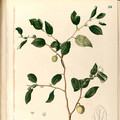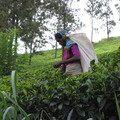How to Identify Good Puerh Tea - Zhi Zheng Tea Shop
„Smokiness
The art of making tea from ancient tea trees is very old. Hand-roasting is not easily mastered. Any slight error will influence the taste of the tea. Smokiness or yan wei is one example but it should be distinguished from a burned flavour which is described as hu wei. The latter, typically arises when tea is not well roasted and is, unfortunately, not uncommon. Yan wei or smokiness is caused by oven drying. “
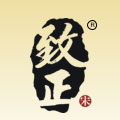
Quotes Tags: Pu-erh, Experiencing tea
- Discussion: 0 comments
- Write a comment
Teas - Pu-erh
2006 Langhe TF Meng Hai Chitse Beeng Cha
 1 review
1 reviewThis is one of classic recipe from Langhe tea factory which is similar with 8542 from...
2013 A few Single Trees (maocha)
 1 review
1 reviewThis tea is a blend of a few single tree teas from Bangwei and Bulang. These trees...
2009 Cha Shu Wang "Jing Mai Chun Liao
 0 reviews
0 reviewsThis Pu-erh is called "Jing Mai Chun Liao Cha" (景迈纯料茶) - Jing Mai Mountain Pure...
2003 Xiaguan Jiaji Tuocha in box
 1 review
1 reviewClassic Xiaguan green box JiaJi tuocha is replenished! Xiaguan TF has been...
Quotes - Pu-erh
„After initial taste and aroma, the first thing tea drinkers are likely to focus on is known in Chinese as 回甘 [huí gān]. In English, a near literal translation is “Returning Sweetness,” but we can think of this loosely as aftertaste. You can experience this clearly in most good teas, and probably already have. In the best teas, though, the taste can go on for hours.“
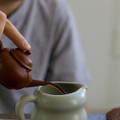
Quotes Tags: Pu-erh, Experiencing tea
Video - Pu-erh
Theme
Teas
2012 EoT Bulang Puer Tea 400g
 1 review
1 reviewThis tea was a bit of an experiment for us. We'd found 2 different maochas from Bulang mountain, which were...
2003 CNNP "Yi Wu Old Tree Round Cake" Raw
 1 review
1 reviewProbably a small tea factory in Yi Wu area pressed this cake under the "zhong cha" label in 2003. Entirely...
2013 Yunnan Sourcing "Year of the Snake Red
 1 review
1 reviewA premium ripe tea composed entirely from 6 and 4 years aged ripe tea from Lincang. Light to medium...
Tea by region
We will help you with tea selection.
Do you like quality loose tea?
We will help you to find the right one for you. Be inspired by tea ratings of other tea lovers. Rating stars could help you.


Review your cup of tea.
Review the tea you are drinking and help other tea lovers to find the right cup of tea.






 Shops
Shops Share on Facebook
Share on Facebook






